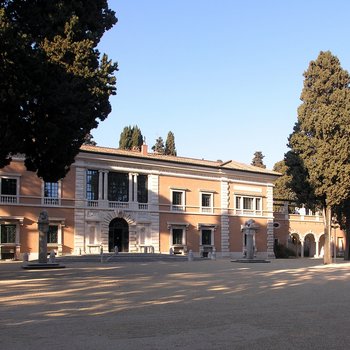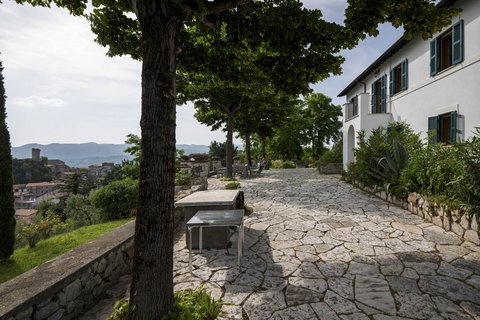
Casa Baldi mit Terrasse
© Villa Massimo
The one thing you cannot accuse Villa Massimo of is scarcity. There’s no shortage of cedars and cypresses; no lack of gravel. You might argue that the lawn is not a picture of health. But even if the well is not bottomless, everything is there, or within reach, or you forget you ever had any other needs before you arrived; needs outside these walls. It’s all been described before; the accolades abound. If there is one minor quibble, then perhaps you might say the sea is too far away. Yes; if there’s one thing this place lacks, it’s water; a sea view. The ancient swell of the ocean, its eternal laws? Nowhere in sight. Perhaps that was why, in a kind of anticipatory wishful thinking, I labelled the parcels of working materials I wanted to send to Rome, mainly books, with the wrong address. And as so often in literature, it is the minimal, barely detectable drift of the words that reveals the author’s intentions. The packaged books went not to the address Largo di Villa Massimo, but to Lago di Villa Massimo, and I can just picture it: Villa Massimo by a bathing lake, a mountain lake, a volcanic lake. The picture is a box packed with postcards. From the park, a path takes you straight down to the beach. Loungers bear the names of staff, alumni, scholarship holders. Every Ferragosto, there are competitions: swimming races, rock diving, a regatta; anything with water. My parcels caught the sea air, by the way. This time, it did not take ten years for Odysseus to dawdle his way back to Ithaca. The gods lost their position as global players around the time the British East Indian Company took over the Mediterranean. This time, it was faster: the books roamed between Feucht, Börnicke, Como, Milan and Rome for forty days before finally docking at the harbour of the DHL branch I sent them from. No-one was there to receive the parcels. Penelope had gone away without leaving me a message. The cupboard was empty; the morning I left, all I found was her scarf on the hook. Then I drove to the airport. I had to go. The man at the post office promised to keep the parcels until I returned. And when he told me that on the phone, I wondered if I would ever collect them from him. I could just as well give Odysseus up for lost, as if I’d rethought my plans to return.
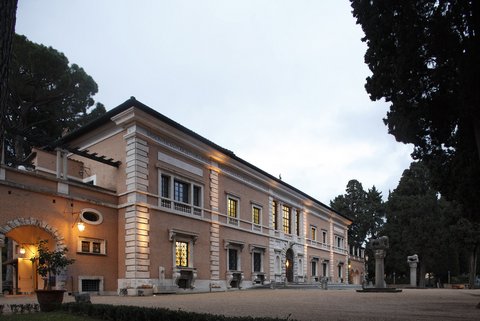
Die Villa Massimo
© Villa Massimo, Foto: Alberto Novelli
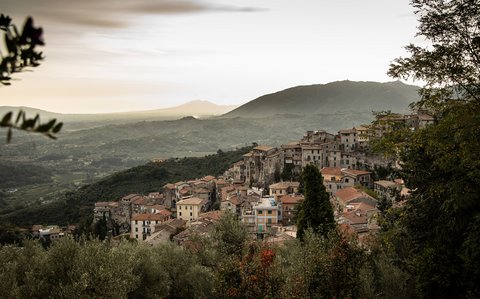
Olevano Romano
© Villa Massimo, Foto: Alberto Novelli
every evening in the sunless corner
upstairs and down
three grandmothers sit on the bench and greet me
buona sera, I say
a plastic bag in each hand
buona sera, say the swollen feet in their crocs
and anoint me with nods
one a short nod, the next two short nods,
the third short then long
to their left and right sit
the day, the month, the year
and turn the coins beneath their tongues
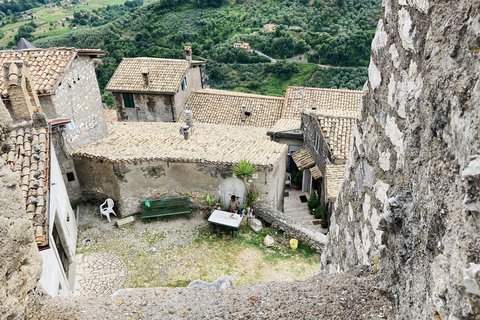
Hinterhof in Olevano, 2021
© Peter Neumann
I came to Olevano Romano to write a book about the long twentieth century. And now I live on a hill between Via XXIV Maggio and Via VI Giugno. When I open the north-facing window in the morning, the First World War is breaking out in Italy. Three dreadnoughts are heading for the port of Ancona and shelling the city. When I step onto the south-facing patio in the evening, the German troops are withdrawing from Olevano. Every day I walk twenty-nine years back and forth to drink my caffè at San Rocco. On a clear day, if the sun is right behind the water, the view stretches over the plains of the Sacco valley to the sea. The Tyrrhenian coast before me, the Adriatic Sea behind, I tread the narrowest ridge of the Italian peninsula. I can’t say I wasn’t warned.
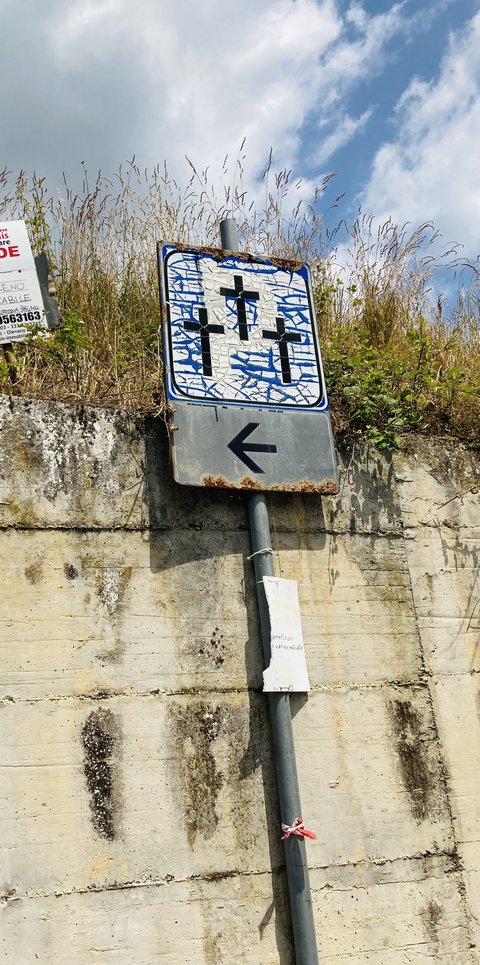
Schild in Olevano
© Peter Neumann
Also of interest:
Though Everything Is Over
Quotes from four passages of the novel Obwohl alles vorbei ist (Though Everything Is Over), published in spring 2023, can be read on posters around Dresden. This intervention by the writer Franziska Gerstenberg is part of the exhibition “Eppur si muove – And yet it moves”.

A Tale of Slumbering Stones
The firing of clay is one of the earliest technologies discovered or invented by man. A variety of work featuring ceramics as well as film and images created by Rome Prize winner Benedikt Hipp will be among the exhibits on display as part of the new exhibition “Eppur Si Muove – Und sie bewegt sich doch” at the Japanisches Palais (Japanese Palace), which happens to be the original location of the Porzellansammlung. In the following, Hipp offers insights into how he himself experiences and observes the creation of his ceramics – from collecting clay to the fired object.
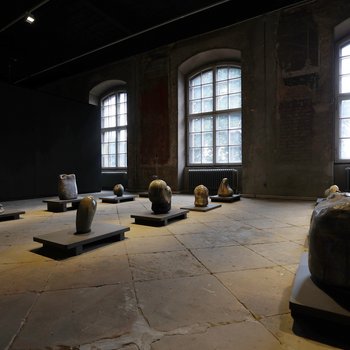
Villa Massimo – The German Academy in Rome
Every year, the German Academy Rome Villa Massimo awards the Rome Prize to nine selected artists, enabling them to spend ten months in Rome. The artists' works from the last two years are on display this year in the exhibition "Eppur Si Muove - Und sie bewegt sich doch" ("And Yet She Moves") at the Japanisches Palais. Angela Windholz introduces the house and its program.
